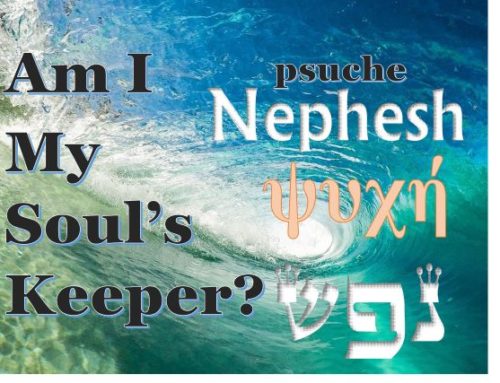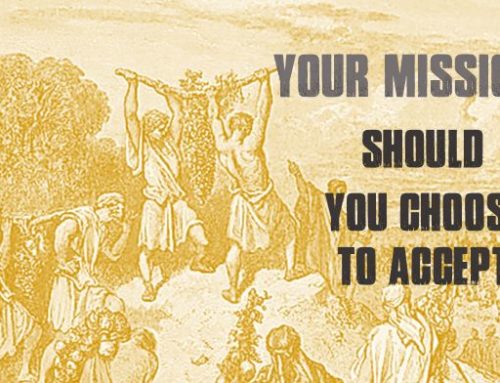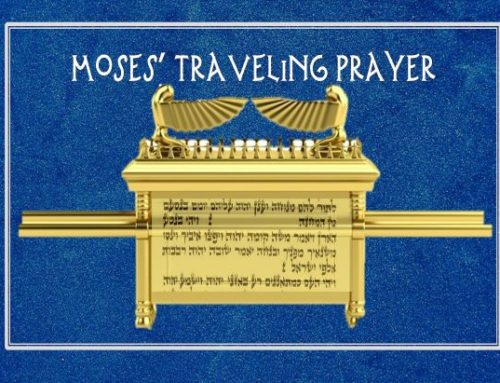Torah Portion, Ki Tisa, Exodus 30.11-34.35, Haftarah, I Kings 18.1-39
“Now when the people saw that Moses delayed coming down from the mountain, the people gathered together to Aaron, and said to him, “Come, make us gods that shall go before us; for as for this Moses, the man who brought us up out of the land of Egypt, we do not know what has become of him.” Exodus 32.1 NKJV
What does it mean to wait upon the Lord? It does not mean a marking of time. The Hebrew word wait (קָוֶה) is related to patient hope and expectation (קָוָה). The word also describes a line or tethering rope (קו). Faith is expressed in waiting on the Lord. Tragically some have ceased waiting. King Saul could not wait on Samuel and lost his kingdom. Some at Sinai forfeited the promise because they could not wait on Moses, and Yeshua warned that many will lose hope in the coming of the Son of Man.
“But when the Son of Man comes, will He find faith on the earth?” Luke 18.8
The writer of Hebrews described hope as a tethered anchor behind the veil of heaven. (Heb. 6.19) Many in our generation are cutting themselves adrift on the rocky seas of eternity.
How do we respond when God’s timetable does not match our own? Aaron heard the calls from agitators to make a false god. We hear those same voices today in articles, podcasts, and social media. They reinterpret scripture, rail against Moses law, and cast doubt on Messiah’s words. The Word of God is calling us to wait (hope) in Salvation.
Our Torah Portion describes three mysterious books of revelation, the Tablets of Stone, the Book of Life, and the Written Testimony. For the next few moments, let us look at the three books for which the people could not wait. They offer powerful parallels to the coming of Messiah.
I. The Tablets God Wrote
“So it was, as soon as he came near the camp, that he saw the calf and the dancing. So Moses’ anger became hot, and he cast the tablets out of his hands and broke them at the foot of the mountain.” Exodus 32.19 NKJV
The people became impatient waiting on Moses to return with the Commandments. We have unanswered questions in Moses’ destruction of the Tablets. He could have thrown them down when the Lord informed him of the golden calf the people had made, and yet he waited until they saw the tablets in his hands, and only then did he throw them down breaking them. Why?
Some have suggested that this was an attempt to save the unfaithful bride of Israel. One Jewish interpretation is that Moses held in his hands the Ketubah or marriage contract. By destroying the contract, he could preserve the bride.[1] Other commentaries disagree. What is striking to me is the fragility of tablets hewn by God and written with His own finger.
All of us have gathered the broken pieces of some special object, attempting to piece them together. When the glue finally sets however, we are left with the knowledge that our treasure appears whole, ye more fragile.
Like those tablets, faith is also a gift of the Spirit of God, and yet it can be broken. We wait for a healing that does not come; it buffets our faith. Longing for a result that takes longer than expected, it pulls on our faith. Yeshua’s spoke of finding faith when He returns in the context of a parable of the woman seeking justice. (Luke 18.1-8) She continued pressing her case before the judge, and so must we. Just as Moses cast this fragile gift to the ground, some cast away their hope and confidence in God to the writer of Hebrews admonished us that our faith contains a great reward.
“Therefore do not cast away your confidence, which has great reward.” Hebrews 10.35 NKJV
Is there a remedy for shattered faith? Losing faith is not inevitable, but for those who have there is a way back. Moses once again went up the mountain to receive a new set of tablets. But what about those broken pieces at the foot of Sinai? What do we do with wounded faith? Tradition tells us that Moses gathered them up and placed them alongside the new set of Tablets in the Ark of the Testimony. There are things in life that cannot be mended. Glue will not restore some broken parts of our lives. Those we place in the presence of God for Him to deal with in His time.
II. The Book God Wrote
“Yet now, if You will forgive their sin—but if not, I pray, blot me out of Your book which You have written.” Exodus 32.32 NKJV
Moses pulled back the curtain of Heaven to reveal a mystery book written by God Himself. This is perhaps the earliest reference in Scripture to the Book of Life. This book already contained Moses name. He argued for his own name to be removed should Israel not be forgiven. In a sense, Moses who broke God’s written tablets is seeking to vandalize another writing, the Book of Life by marring it with an erasure. This is true of every person who abandons the faith. They mar the Book of Life, by their erasure, forever marking the scroll with a void. To abandon the faith is no different than throwing the fragile tablets written with the finger of God to the ground.
I question the reasoning which says Moses threw the tablets to the ground in order to spare Israel the legal obligations in their “marriage contract”. However, we are witnessing a generation of preachers, and college professors in theological institutions who are following such a flawed logic.
They hold God’s Word before a generation gone wild, and rather than give them the unaltering Word, they believe they are helping when they cast God’s Word to the ground before the people. They say these Words were written for a different generation, and cast doubt using verbal gymnastics to reinterpret meaning.
Do not be fooled by religious leaders who cast away God’s Word to accommodate sinful lifestyles. In attempting to keep such from the book of commandments, they condemn them to be erased from the Book of Life.
“And the Lord said to Moses, “Whoever has sinned against Me, I will blot him out of My book.” Exodus 32.33 NKJV
III. A Testimony Moses Wrote
“Then the Lord said to Moses, “Write these words, for according to the tenor of these words I have made a covenant with you and with Israel.” Exodus 32. 27 NKJV
With His own finger, God wrote the Ten Commandments, and He has also written eternal names in a book, and yet Moses was charged to write the Testimony as God dictated. In this way, we too become part of the process of transmitting God’s Word to a new generation. Where are the parchments of Moses? Where are the original Gospels? The generations of faithful have transmitted this faith to us, their children. What about this coming generation? Will we put our hand to the plow, or more aptly, the quill and parchment, to live out this faith? It is not enough that the words be transmitted, they must be lived. College professor, when preface your class with the words, “Did God really say…”, you stand alongside the deceiver who first uttered those words.
When the Son of Man comes, will He find faith on the earth? Will the masses accurately hear the Good News from us? That is our challenge as we bring the Word to a wild people. Will we throw the commands to the ground and take up a sword, or faithfully give them the life-giving Word of Heaven?
Conclusion
Yeshua assured us that He, the Son of Man, will come again. But the question is will there be faith on the earth? As Israel struggled, waiting on Moses to descend through the clouds of God’s glory, so we struggle in the wait for Messiah coming on the clouds. Hope and confidence like the Ten Commandments, are fragile. If along the journey you have found your hope shaken, gather up the fragments and bring them to God. Place them in His presence and allow Him to cover them. He is able to give you new joy and restore hope. May you find the courage to present God’s Word to this generation, despite their threats to cancel. If we forfeit them God’s Word here, we endanger their name in the Book of Life, written by the Lord Himself.
Shavua Tov from Zion
[1] See Rashi on Exodus 34.1




